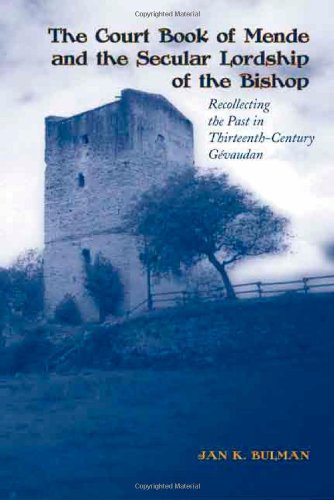

Most ebook files are in PDF format, so you can easily read them using various software such as Foxit Reader or directly on the Google Chrome browser.
Some ebook files are released by publishers in other formats such as .awz, .mobi, .epub, .fb2, etc. You may need to install specific software to read these formats on mobile/PC, such as Calibre.
Please read the tutorial at this link: https://ebookbell.com/faq
We offer FREE conversion to the popular formats you request; however, this may take some time. Therefore, right after payment, please email us, and we will try to provide the service as quickly as possible.
For some exceptional file formats or broken links (if any), please refrain from opening any disputes. Instead, email us first, and we will try to assist within a maximum of 6 hours.
EbookBell Team

4.8
14 reviewsMende is a diocese in south-central France where, in the 1260s, scribes of Bishop Odilon de Mercoeur created an extensive court book or register of litigated cases. Their intention was to develop an archive for the use of the chancery as well as to preserve the causae of the episcopal court. These records would later be used by Guillaume Durand the Younger to construct a version of the past which verified episcopal secular lordship and sovereignty in response to mounting intrusion by the king of France.
For all of its importance to the history of religion in France, the court book of Mende has received little attention by historians and medieval scholars. In this study, Jan K. Bulman examines the interrelationships between the written records of the ecclesiastical court, the preservation of historical memory, and the defense of episcopal seigneurial rights. Bulman shows how the bishops of Mende followed a singular strategy to defend against loss of autonomy, one that was unique in its reliance on archival records, ancient charters, and narrative hagiography. Richly presented and comprehensively researched, this will be an indispensable work for scholars of religion and the history of medieval France.